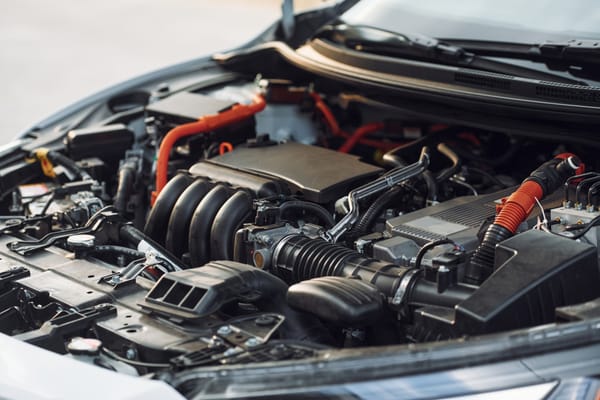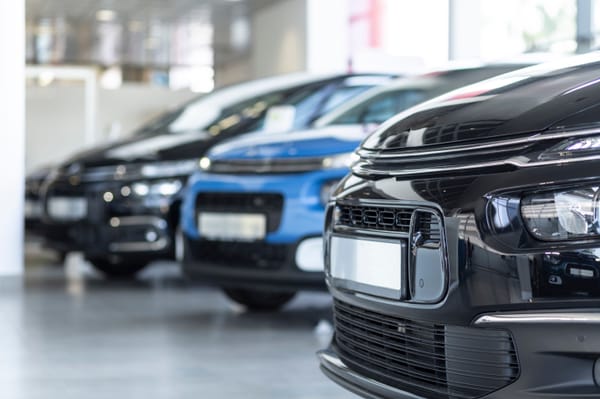Importing vs. Buying Locally: A Cost-Benefit Analysis for Kenyan Buyers

“Importing a car is cheaper than buying locally.” How many times have you heard someone say this? A lot, no doubt. But how true is it?
Both options offer perceived advantages, yet a closer examination reveals the smarter, more efficient, hassle-free, and affordable path for Kenyan car buyers. With an estimated used-car market size projected to grow from USD 1.72 billion in 2025 to USD 2.44 billion by 2034, there’s a clear need for guidance on the best way to buy a used car in Kenya, affordably.
Which option saves you time, money, and stress? Here’s a short guide by Peach Cars to help you make an informed decision.
What’s the Allure of Importing Used Cars from Kenya?
It’s all about affordability. At first glance, importing a used car from Japan or the UK seems cheaper. Why? Here are some reasons:
- Perceived Wider Variety of Used Cars – Being able to choose from a wider variety of models as compared to what is available locally.
- Buying Unique Used Cars – The possibility of owning a unique vehicle with special features, higher trims or newer enhancements as compared to what’s already in the market.
- Potential Cost Savings: The belief that importing a used car directly instead of buying locally can result in significant savings.
Of course, all these are valid reasons until you actually do the math – at which point you’re able to decide whether the cost is friendly to your pockets or not.
For car enthusiasts with specific preferences, this option might seem viable, but as a car buyer looking for affordable options, you may need a path without endless and unfamiliar processes.
The True Cost of Importing a Used Car in Kenya
While the initial price of a used car abroad might seem cheaper, it’s important to understand the extensive list of additional costs you will incur while importing the vehicle.
Some of these charges include:
- Shipping Fees – Transporting a car from Japan, for example, to Kenya costs approximately Ksh100,000 to Ksh500,000 or more, depending on the car size, port of origin, the shipping method (container versus roll-on/roll-off). Roll-on/roll-off shipping is often a cost-effective option.
- Import Duty – This is a substantial cost to consider, and it currently stands at 25% of the Customs Value (CIF) of the vehicle. The CIF value is calculated by adding the car's invoice value, insurance costs, and freight charges.
- Excise Duty – The amount payable here depends on the engine capacity of the vehicle. For cars with an engine capacity of 1500 cc and below, the applicable excise duty is 20%, while those above 1500 cc are subject to a 25% excise duty. This duty is calculated on the sum of the Customs Value and the Import Duty.
- Value Added Tax (VAT) – A Value Added Tax (VAT) of 16% is applied to the cumulative total of the Customs Value, Import Duty, and Excise Duty.
- Port Handling and Storage Charges – On arrival at the Mombasa port, your vehicle will incur port handling and storage charges, which can range from Ksh40,000 to Ksh70,000.
- Railway Development Levy (RDL) – A Railway Development Levy (RDL) of 2% of the CIF value is applied.
- Import Declaration Fee (IDF) – You must also pay an Import Declaration Fee (IDF), which is currently set at 3.5% of the CIF value.
- Clearing Agent Fees – The clearing processes at the port can get really tiresome. Engaging a licensed clearing agent will cost you approximately Ksh10,000 to Ksh30,000 or even Ksh100,000, depending on the complexity of the process and the specific agent.
- Additional Fees – Verification fees (approximately Ksh15,000), Interpol fees (Ksh15,000), radiation fees (Ksh1,000), and NTSA sticker fees (Ksh800).
- Marine Insurance – Marine insurance, a mandatory requirement, must be obtained from a local Kenyan company and it’s usually around 0.4% of CIF.
- Potential Hidden Costs – Unexpected delays, currency exchange fluctuations, and modifications to meet Kenyan standards.
- Registration and Number Plates – Registration fees (Ksh15,000 to Ksh23,000 or more) and new number plates (approximately Ksh3,050).
- Local Transportation – Transportation from Mombasa to other locations (Ksh20,000 to Ksh75,000).
- Compliance – Vehicles must be right-hand drive and not exceed eight years in age from the date of manufacture.
What about Buying Locally?
As you can see above, importing a car has many hidden costs. Beyond the cost of purchasing the vehicle in Japan, you’ll incur all the mentioned costs, not to mention that what you pay will be subject to the fluctuating currency rate.
Buying locally allows you to bypass all these expenses. At Peach Cars, for instance, the cars are already cleared and are priced competitively. What you will incur on top of the sales price is the transfer of ownership and the one-off NTSA sticker and insurance fees.
It’s a compelling and a cost-effective alternative. Here are more reasons:
- Used cars are readily available for viewing, test drives, and instant purchase.
- The pricing is transparent without hidden import duties or fees.
- You get a chance to pay for your car using the available financing options – Peach Cars has collaborated with some of the leading financial institutions in the country to help you own a car easily with flexible financing.
- You also get ongoing after-sale support for the used car you buy.
- Reduced hassle of buying a car. From the date you import a car to the moment you actually get to drive it; it’ll take approximately 41 days (as indicated by most of the websites selling used cars in Japan). With a local purchase, however, you can drive your car home on the same day!
- Vehicles are already compliant with local regulations and suited to Kenyan road conditions.
- Vehicles are thoroughly inspected, and there are no surprises or expensive repairs down the line.
- You can trade in your vehicle for another one – how cool is that?
4. Cost Comparison: Importing vs. Buying Locally
To better illustrate the cost implications, let’s consider a popular vehicle like a Toyota Harrier manufactured in 2018. At Peach Cars, one such unit is going for Ksh3,000,000. The purchase price in Japan is approximately Ksh2,173,801. Let’s calculate how much you’ll end up paying for both options:
Example: Toyota Harrier
- Price in Japan: Ksh2,173,801
- Price at Peach Cars: Ksh3,000,000
Let's break down the costs of importing the Toyota Harrier:
- CIF Value: We'll assume the CIF value is the same as the Japan purchase price for simplicity. Ksh2,173,801.
- Import Duty (25%):
- 2,173,801x0.25=Ksh543,450.25
- Excise Duty (Engine 2000cc, 25%):
- (2,173,801+543,450.25) x0.25=Ksh680,562.81
- VAT (16%):
- (2,173,801+543,450.25+680,562.81) x0.16=Ksh543,650.29
- RDL (2% of CIF):
- 2,173,801x0.02=Ksh43,476.02
- IDF (3.5% of CIF):
- 2,173,801∗0.035=Ksh76,083.04
- Marine Insurance (0.4% of CIF)
- 2,173,801x0.004=Ksh8,695
- Estimated Shipping: Let's say Ksh100,000 (average).
- Estimated Port Charges: Ksh50,000.
- Estimated Clearing Agent Fees: Ksh20,000.
- Other Fees (Interpol, Radiation, NTSA, etc): Ksh31,000.
- Local Insurance: Ksh7,500
- Estimated Registration: Ksh20,000.
- Estimated local transport: Ksh20,000.
Total Imported Cost:
2,173,801+543,450.25+680,562.81+543,650.29+43,476.02+76,083.04+10,000+50,000+20,000+31,000+20,000+20,000+8,695+7,500=Ksh4,328,218.41
Comparison Table:
PS: The figures are estimates. The additional charges including clearance fee, marine insurance, local insurance, etc., might be more depending on the provider.
There you have it, the answer to your question on whether to buy locally or import. Importing a 2018 Toyota Harrier costing Ksh3 million in Kenya will cost you 1,317,473 shillings more!
Sometimes you might get a seller who offsets certain costs, or gives you a discount, but still, buying locally is more economical than importing.
The Local Buying Advantage
Beyond the financial implications, practical considerations regarding vehicle ownership in Kenya should also be considered. Cars purchased locally have already been adapted for Kenyan road conditions and fully comply with all local traffic regulations.
Kenyan roads can present challenges, including varying quality and significant traffic congestion, particularly in urban centers like Nairobi. Vehicles sold locally by dealerships like Peach Cars are selected with these conditions in mind.
Furthermore, obtaining spare parts and accessing qualified mechanics for locally sold car models is typically easier and more cost-effective compared to less common imported vehicles.
Visit Peach Cars and Drive Home with Your Dream Car Today!
At Peach Cars, we’re not just about selling vehicles. We’re committed to ensuring you make smart and practical financial decisions. Buying with us helps you avoid hidden costs, enjoy immediate access to your vehicle, and support the local economy—all while receiving transparent documentation, vehicle history and reliable after-sales service. Reach out to us today and let’s discuss your dream car!




